First time here? Get caught up with the mission statement, Episode I, Episode II, the Clone Wars movie, the first season of the show, the second, the third, the fourth, the fifth, the sixth, Clone Wars Legacy, Episode III, the lead-up to Rebels, Rebels Season 1, Rebels extras, and Episode IV.
Three years pass between the Battle of Yavin, wherein the Death Star is destroyed, and the start of The Empire Strikes Back. It's clear from the second film a lot has transpired in between the two, and the majority of the new canon's expanded universe seems devoted to filling in those gaps (one full novel, two young adult works, three short stories, six graphic novels and counting). For the sake of this post, we'll only be discussing completed stories, in so far as the individual arc has been concluded. To date, the includes the first two arcs of both the Star Wars and Vader comics, as well as the Princess Leia and Lando miniseries. However, seeing as the Chewbacca miniseries will not concluded until late December, and the Vader Down crossover event even later, it didn't feel right to judge them as incomplete works. Overall, there are some weaker titles mixed in with some that really capture the tone of the series and expand the universe, but it's clear that the Lucasfilm story time was heavily involved in the development of these tales (particularly the comics and the YA novels), leaving a trail of breadcrumbs along the self-described "Journey to the Force Awakens" that may make the works less thrilling in hindsight once the secrets have been revealed, particularly if things like Sarko Plank and Caluan Ematt turn out to be more Opie sea creature than Qui-Gon Jinn.
Anyway, enough delay. We've got a lot of works to (spoiler-free) cover, so let's dive right in.
Smugglers Run
With a prologue and epilogue set before The Force Awakens serving as a framing device (Han setting down in a bar to tell a story about the Millennium Falcon), we launch into a story set immediately after the ending of A New Hope, with Chewie even clutching the medal we never see him awarded (explained, by the way by Chewie's interior monologue). Han's originally reluctant to take on the mission Leia assigns him, wanting to cut and run to clear his debts with Jabba, but when the Wookie hears tell of Caluan Ematt, whose Shrikes were seeking out new base locations when he found himself stranded on Cyrkon in need of rescue, he demands they take it. With an enemy in the form of a rather imposing imperial, Commander Beck (there's more females in this YA novel than in the entire film that precedes it), and engrossing locales like a domed city and a flying cantina, Smuggler's Run is a brief but enjoyable read, and while without mentions of the Force or any such mystical elements, the story has a very Firefly-esque quality to it, fitting a Solo-centric novel and keeping the action fairly gritty and grounded. Smuggler's Run is definitely worth a read, especially if you're as fond of the swashbuckling smuggler as I am. (Nestle also produced a motion comic for Smuggler's Run that functions as an abbreviated version of the story told from Beck's perspective, which can be found here.)
Princess Leia
Mark Waid, whose work includes the classic Kingdom Come and the current Black Widow title, takes on the titular Princess (who was also apparently a Senator, which throws out all my understanding of galactic politics), and delivers a thrilling tale of adventure as Leia goes off in search of the surviving Alderaanians. Kicking off immediately after the medals are handed out for the Battle of Yavin (At the ceremony, by the way, there's already a giant statuary memorial to the Organas, meaning they either managed to build a statue very quickly, diverting effort from dealing with the Death Star, which would be the greatest waste of resources and time since Batman decided a flaming bat was necessary; or they've had the statue on the base all along, meaning the Organas are so deeply, deeply entrenched in the philosophy and structure of the rebellion to be idolized, so Tarkin, while not justified, was more Harry Truman than Ho Chi Minh. Just sayin'), we get to see that though the rebels passion for the cause is strong, their feelings towards Leia is far more tepid and mixed. Setting out on a mission to rescue toe remaining Alderaanians scattered throughout the galaxy, Waid delivers an exciting tale full of lavish set-pieces, clever allusions to lore both Star Wars and other, and a surprising amount of character development for it's tragically short 5 issue run (I personally would have been down for an ongoing series of Leia tracking down her lost people). Princess Leia is definitely worth checking out, and bodes well for the Marvel titles going forward.
"One Thousand Levels Down"
Appearing in Star Wars Insider 151 (which is worth seeking out just to silently giggle to yourself as they writ about that promising new filmmaker Josh Trank, who was finishing up Fantastic Four and was set to do a standalone Star Wars film at the time. How little we knew then), this short story follows two Alderaanian children who'd immigrated to Corruscant years prior. Out of concern for civil unrest, the Empire was rounding up any former resident of the planet, causing the kids to go on the run. It's certainly not a terrible premise for the story, and the actual narrative beats are engaging. However, the story is hampered by just how uninteresting the characters are. The young boy is underdeveloped, and the sister, our main protagonist, is poorly written. We've seen, in most recently in Mark Waid's Princess Leia but even with characters like Asajj Ventress, that you can do the archetypical "icy" female character who surpasses their emotions and humanity to get the job done, but we need those hints they're human. We don't get any of that in the lifeless Ananda, who, I hate to say it, just seems cold and bitchy to the point where you don't quite care if they survive or not. Yes, "One Thousand Levels Down" is an interesting read, but its not an enjoyable one, and not at all necessary as such.
Heir to the Jedi
If ever there was a Star Wars novel that embodied the term "inconsequential", Heir to the Jedi is it. While the choice to write the novel in first-person, from Luke's perspective, is an engaging enough idea to keep you captivated at the start, the novel wanders aimlessly between seemingly unrelated events, like keeping you waiting for the inevitable Chekhov's lightsaber Luke uncovers in the first part of the book to return only for it to go unmentioned for the remainder of the story, making the entire initial adventure completely inconsequential to the rest; and this is ultimately true of each subsequent tangentially connected story within Heir to the Jedi. It feels more like a novelization of a video game, so frequent are the diversions and fetch quests that exist solely to pad out the narrative. Yes, we're treated to brief flickers o Luke's Jedi training, and he puts the lightsaber to use for the first time (decapitating an alien, which doesn't constitute "combat" apparently, since this novel (according to Wookiepedia at least) precedes The Weapon of a Jedi, the story of which is Luke's first lightsaber combat), but ultimately the novel meanders tediously, introducing characters too dull to make an impact, deflating promising moments (aliens that can drill through skulls, a Rodian descendant of a Jedi knowing about Anakin Skywalker during the Clone Wars) with a lack of purpose, and sticking to a narrative device that results in a limited scope and even more limited vocabulary. Much like Huulik's lightsaber, Heir to the Jedi feels like a relic from a forgotten time (the Expanded Universe, which the novel was originally intended to be a component of), ultimately purposeless, drifting through the cosmos amongst the other works. Take a pass on this one.
The Weapon of a Jedi
My admiration for Jason Fry has been made abundantly clear in my Servants of the Empire entries, and I'm pleased to report his talent hasn't diminished at all in tackling the OT (Original Trilogy) timeline. True, The Weapon of a Jedi lacks the heft of the Servants novels, but we get some great insight into Luke's mastery of the force, and some fun acknowledgement of things past, like 3PO chastising R2 for his "imagination" when R2 suggests 3PO swap heads with a battle droid, as he did in Attack of the Clones but can't recall due to a memory wipe; and things to come, as the menacing Sarco Plank, perhaps the coolest villain introduced in the novels thus far, is set to return in some capacity in The Force Awakens. With the intriguing concepts of a Jedi temple on Devaron (which you may recall is the temple where Savage Opress committed his slaughter in Clone Wars) and Luke's promise to return to the young Farnay (and 3PO's confirmation that he did in fact), I sincerely hope we see a return to this setting and the characters either in a direct literary sequel or as a sidetone within the upcoming films (though wouldn't it be totally wizard if Devaron is where Luke disappeared to perforce Awakens). The Weapon of a Jedi is definitely worth picking up, if not for the great pacing and satisfying story, then solely to wet your appetite for the upcoming films through Luke's conspicuous absence in the novel's prologue and epilogue. (Nestle also produced a motion comic for The Weapon of a Jedi that functions as an abbreviated version of the story told from Farnay's perspective, which can be found here.)
Star Wars Book I: Skywalker Strikes
The Marvel titles Star Wars and Vader run concurrently, and intersect frequently, so it's highly advisable to read both simultaneously, issue by issue, in the order listed by Wookiepedia, similar to how Buffy the Vampire Slayer and Angel were structured in their heyday (for example, the first three issues of Star Wars technically occur before the first issue of Vader). So how does Thor writer Jason Aaron's Star Wars book hold up? Pretty good. The first volume mainly focuses on an attack on a weapons compound and Luke going off on his own, so the story is terribly substantive compared to, say, Princess Leia or Kanan, but it's an enjoyable enough ride that helps to answer some questions about when certain revelations came to light between Episodes IV and V, most importantly the reveal of just how Vader discovered the extent of his lineage. There's also a surprising amount of twists Star Wars packs in without ever feeling like its stretching or ignoring the timeline. Everything about it fits organically, and its certainly a satisfying continuation of the story, if not a terribly remarkable one thus far. It is worth checking out, however, particularly when paired with its companion piece.
Darth Vader Book I: Vader
Kieron Gillen, author of one of the best Secret Wars titles (Siege) takes on the Sith Lord with brilliant blend of compassion and menace, presenting us with an array of colorful new characters, including a torturous protocol droid reminiscent of HK-47 from the no-longer-canon Knights of the Old Republic; as well as a Tank Girl-esque "rogue archeologist" who seems to be an almost-Imperial Ahsoka, which one can assume keeps her in Vader's good graces. One can't know for sure, however, as Gillen does brilliant work of taking us deeper into understanding who Vader is without ever truly letting us look inside his head, never making him vulnerable to the reader. Even when he receives word of his son's existence (through a great subplot that intersects both this and the Star Wars title), he's not wounded, but betrayed, and his incendiary fury smolders through the page. Building on the foundation laid out in Lords of the Sith for Vader and Palpatine's dynamic, Gillen finds a way to craft drama and intrigue between the two titanic partners in evil while never tipping the hat to strongly to what will be the ultimate fate of the duo in Return of the Jedi, making it a delight for fans both old and new. I cannot recommend the title more highly, it's easily the best Star Wars comic thus far.
Star Wars Book II: Showdown on the Smuggler's Moon
The second volume of the Star Wars series vastly improves upon the first, adding much more gravity and greater stakes for each of the characters, expanding the universe and introducing new characters both significant, namely Sana whose surname is both of question and excluded from this post to avoid spoilers, as well as simply entertaining: let's face it, if you're not delighted by either a one-eyed Gungan or a creature called Kongo the Disembowler, you've lost the ability to feel joy. Add in the payoff of Luke's quest for the Jedi Temple acting as a Hitchcockian suitcase bomb for those of us who've read the Sith-based novels, and you've got a thrilling adventure worthy of the series. Of course, its worth noting perhaps the most interesting part of the second volume comes in the form of a single issue, an entry from the journal of Ben Kenobi (yes, technically this single issue should have been covered in the "Between Revenge of the Sith and Rebels" post, but...look, I have no excuse on that one), a compassionate look at the solitary struggle of Obi-Wan Kenobi to abandon his jedi ways in his transition from Ewan McGregor vivacity to Alec Guinness wisdom. Certainly worth checking out, either issue by issue or when the trade paperback comes out January 26th, 2016.
Darth Vader Book II: Shadows and Secrets
To paraphrase the ski-instructor from South Park, if you don't like Aphra or 0-0-0, you're gonna have a bad time. Vader's relationship with the rogue archeologist goes even deeper this time around, as does his competition with his various rivals. There's a great deal of conspiring and underhanded tactics that create a more three dimensional Vader than any of the novels (who treat him too sentimentally) or film (who treat him more archetypical than interesting). Here we see a Vader who is cunning, intelligent, we see that Anakin Skywalker really was reborn as Vader, but the change was not solely a moral one. He became more focused, more driven, more powerful. Gillen dips even further into the well he'd established in his last volume, and while I can see how it could be off-putting to fans of the more straight-forward Jason Arron Star Wars book, I thrive off of the quippy lines of 0-0-0, and Aphra may be my favorite character since Ahsoka to stand alongside the lord of the Sith (Tarkin not-withstanding), so this second volume gives me more of what I love. Definitely worth reading, especially for some quality character moments as Vader begins to uncover more about the son he never knew he had.
Star Wars: Commander
Well, like most of the browser- and mobile-based games mentioned in this blog, this is "canon" because Wookiepedia qualifies it as such, since it was released after the date designated by Disney to mean it was. That said, this Clash of Clans for the galaxy far, far away doesn't have much in the way of substantial plot. There is a story, but given your option to join either the Empire or the Rebellion, it clearly can't be one of much significance to the overall arc of the saga, so it's best not to focus on that. As a game, its fun enough, engrossing without being terribly enriching, a serviceable entertainment for a mobile game, especially for those who prefer the strategic elements of, say Galactic Battlegrounds over the run-and-gun of Battlefronts. If gaming is your thing, or you just need something for the subway ride, Star Wars: Commander is worth downloading, though its inconsequentiality renders it unnecessary from an overall narrative perspective.
Lando
If I told you there was a Lando comic, unless you'd grown attached to him either through the films or his Rebels cameo (and subsequent short story), you'd probably ask "Why?". If I told you it was a mix of Ocean's Eleven and James Bond, would that do it for you? What if I added in that the first page features a post-coital Lando addressing a woman in bed, and he calls her "baby"? And let's toss in the fact that it massively expands Sith mythology, incorporates a pair of subtly gay characters, and makes you misty eyed about the famously inconsequential character Lobot? Impossible, you'd say, but much like Calrissian himself, Charles Soule beats the odds by blending all of that into a five-issue miniseries that makes you desperately wish for more, solidifying the titular character as one of the most badass bandits in the galaxy, a smooth-talker with skills and style to match. The only downside to Lando is its limited lifespan, as you can't help but want more adventures with the wise-cracking scoundrel. Easily the most humorous and human of the comics thus far released, Lando is a must read for fans of the character, and just those who love the idea of Spielbergian/Indiana Jones-esque adventures in the Star Wars universe.
"Last Call at the Zero Angle"
Jason Fry returns to the Star Wars universe once more, humanizing the Empire even further than he did in Servants of the Empire. Taking us inside an Imperial watering hole on base for the lower ranked soldiers, we get a sample of their slang, a taste of their rivalry, and even a few bars of their rallying cries (which seem lyrical similar to another organization's chant). It's also a beautifully crafted piece about the horrors of war in the guise of Star Wars lore, reminding you that no matter who's right or wrong, there's a cost to combat, humans beneath the helmets, and a story behind every soldier who goes down in the line of duty. An absolutely great read, it's worth tracking down Star Wars Insider 156 for.
"Inbrief"
The latest short to appear in Star Wars Insider (and the last until The Force Awakens makes its theatrical debut) focuses on the Twilight Company, the subject of the time-period spanning novel Battlefield: Twilight Company, heretofore ignored by this blog for the same reason as Lost Stars, it's years- or decade-spanning timeline which prevented easy placement within this current endeavor (but I promise to cover them in due time post-Force Awakens, dear reader). However, since this isolated story has a definite singular placement, it's worth talking about, and ultimately its also worth reading in so far as it achieves its goal: the story was clearly crafted to tease readers and entice them into purchasing Battlefield: Twilight Company, and despite the high price tag on the novel that's put me off to it until now, I desperately want to read it now. Despite being focused on the life of a bounty hunter named Brand, there's enough teased about the singular uniqueness of the Twilight Company as a whole to make myself, and I'm sure any other reader, curious to see just what makes them so different. If Fry's "Last Call at the Zero Angle" presents the human faces of Imperial forces, "Inbrief" tantalizingly teases the human faces of the rebellion.
Well, that's everything in between the Battle of Yavin and the start of The Empire Strikes Back that's thus far been released in full. Come back on Friday, when we take a look at the second film in the original trilogy, which contains the infamous familial revelation. See you guys then.

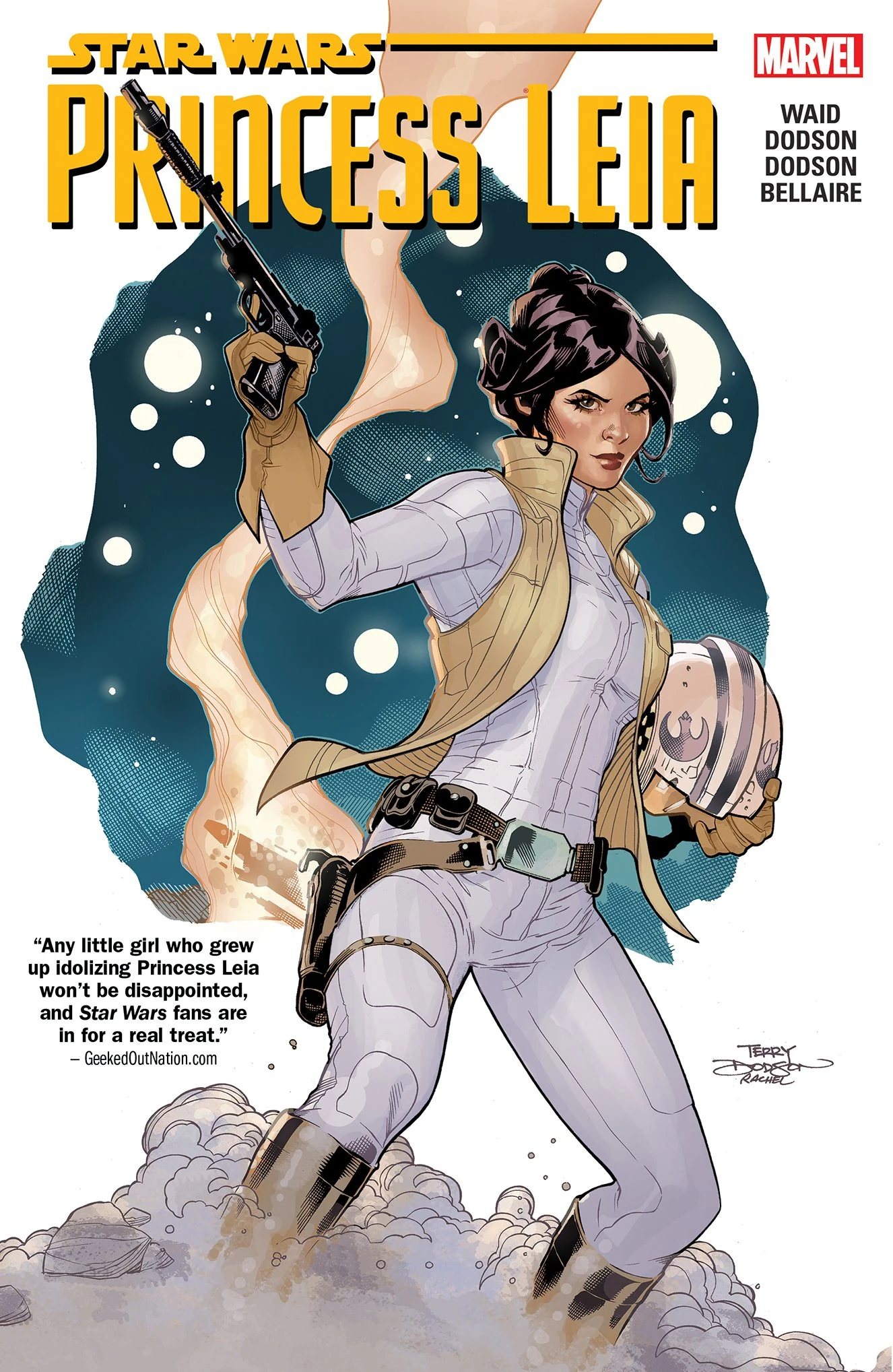
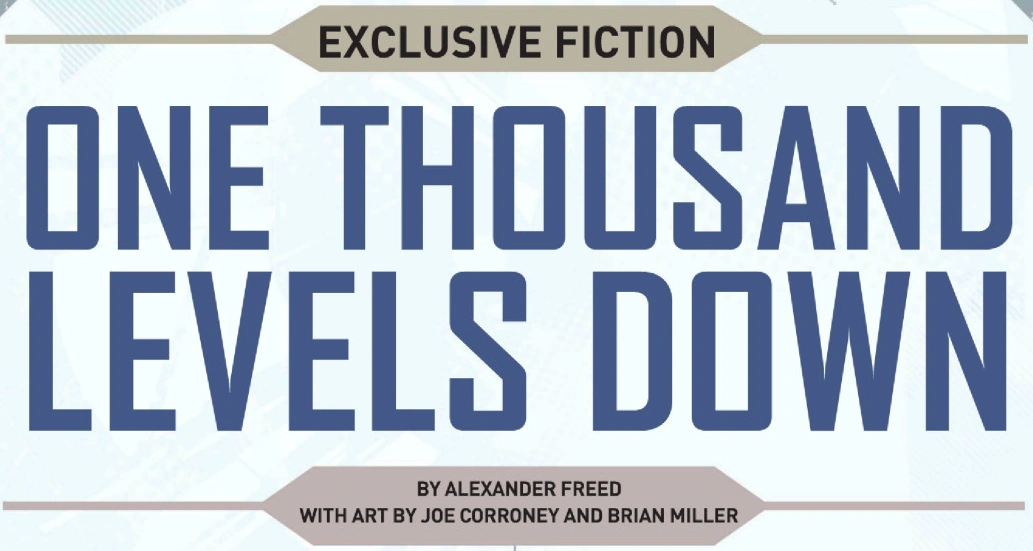
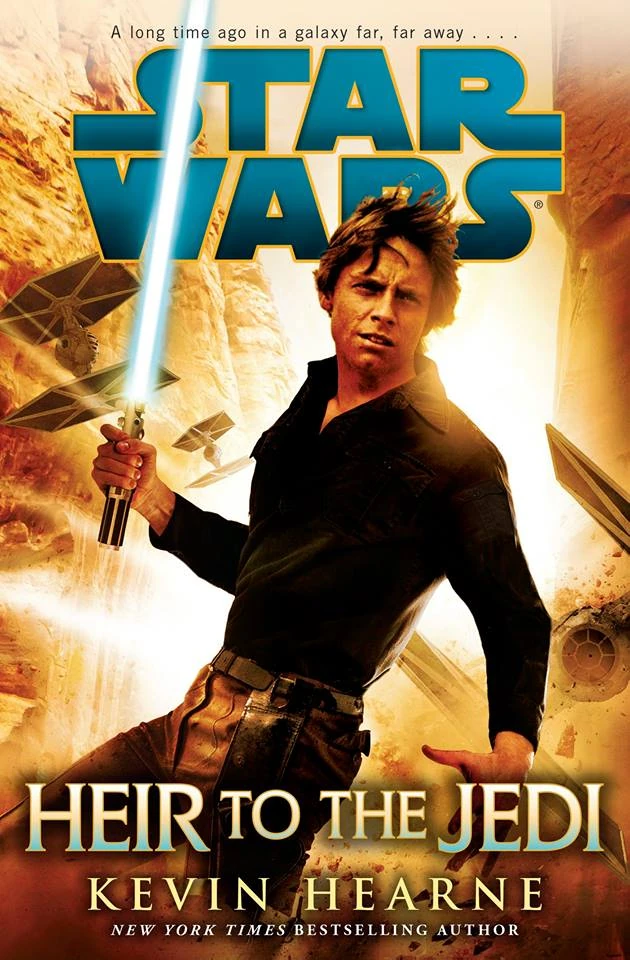

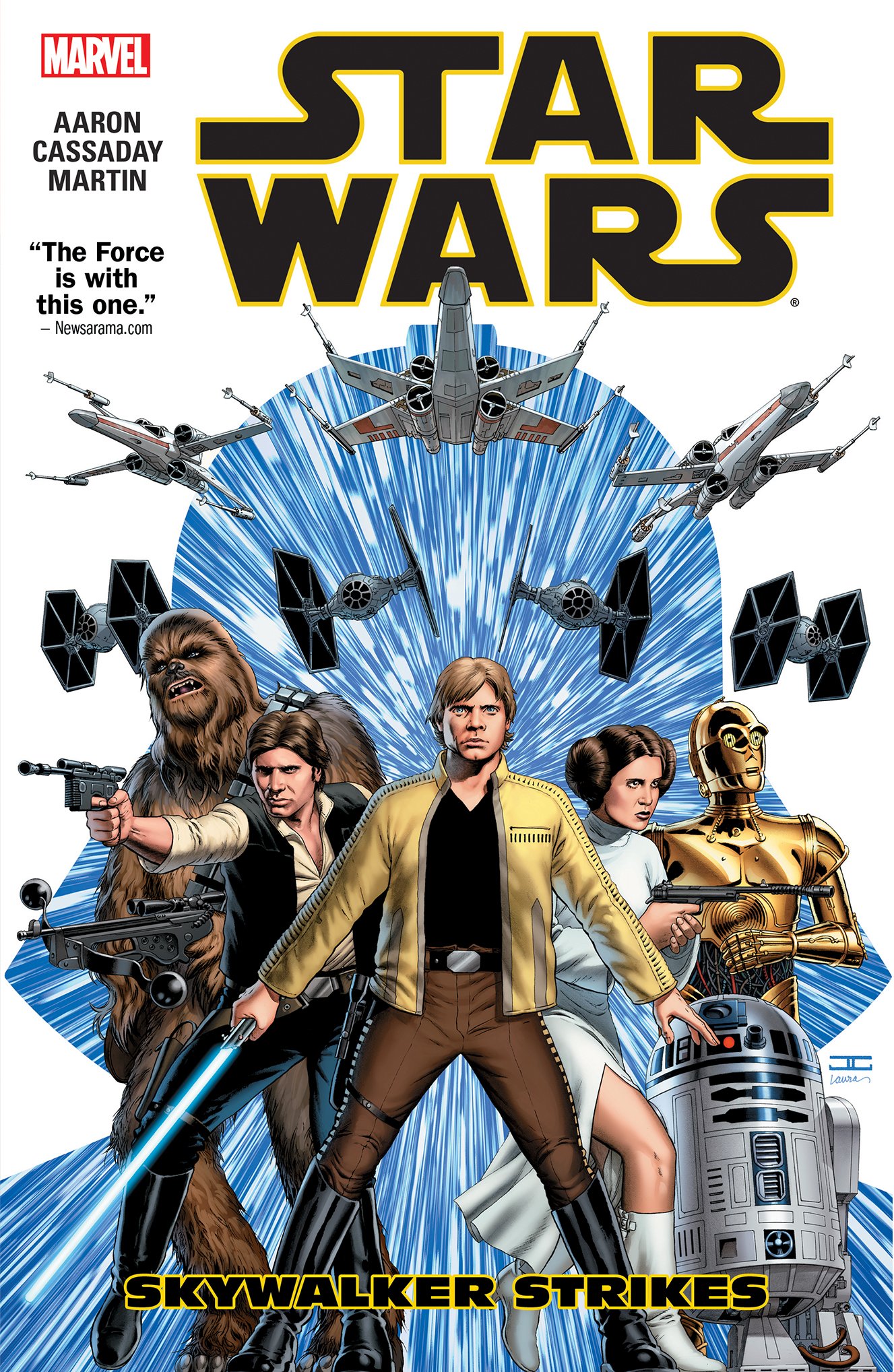
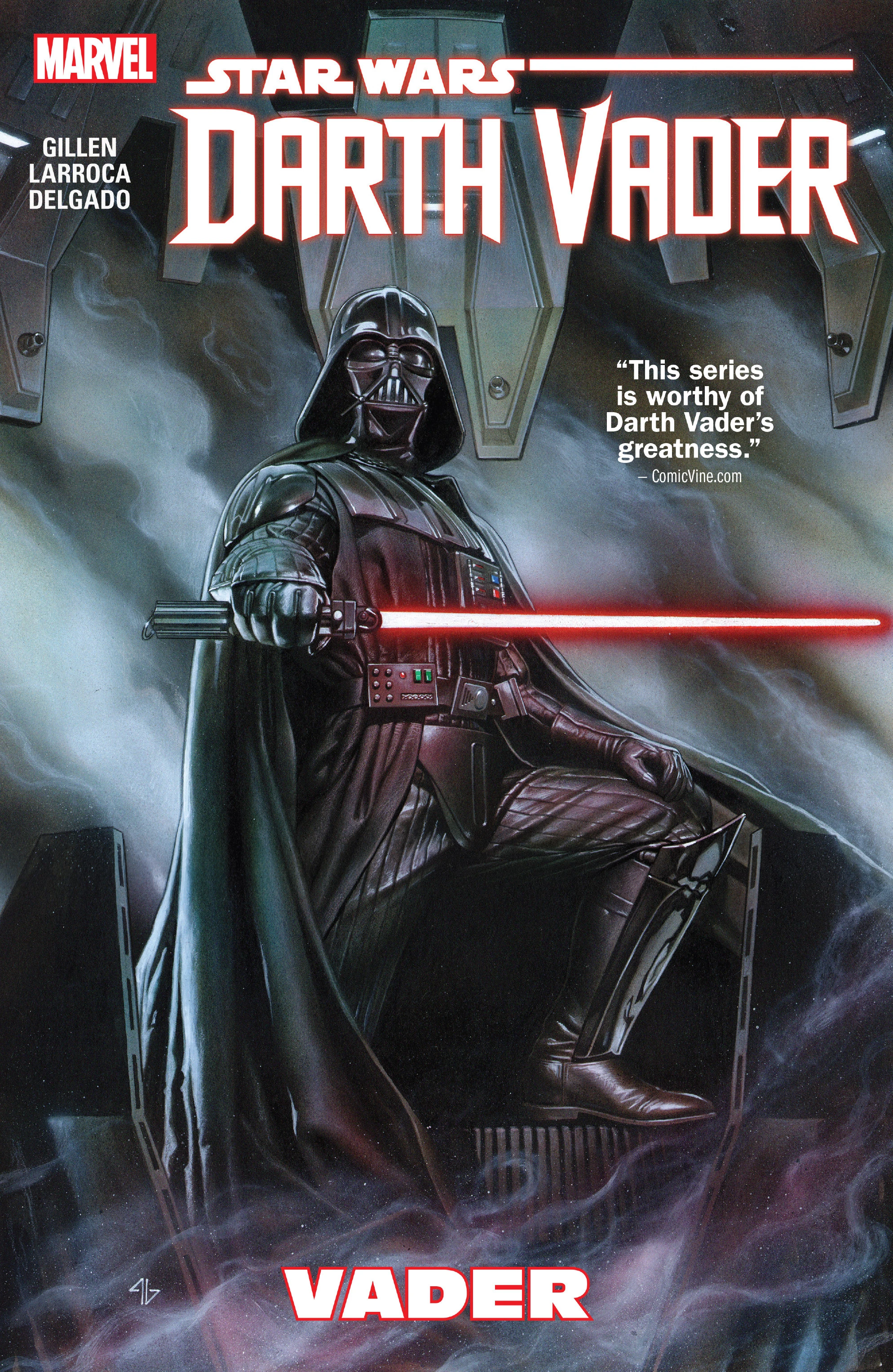
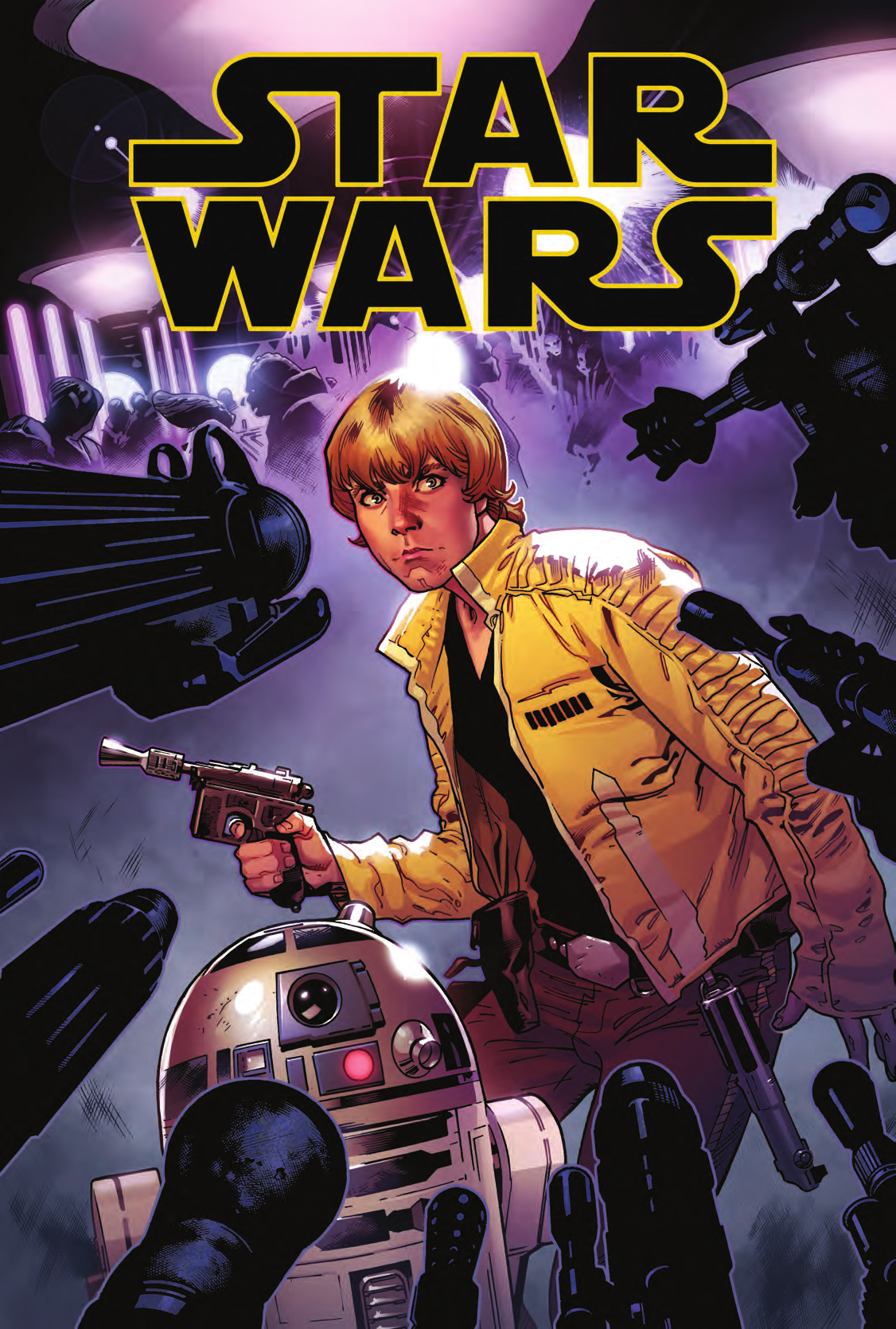
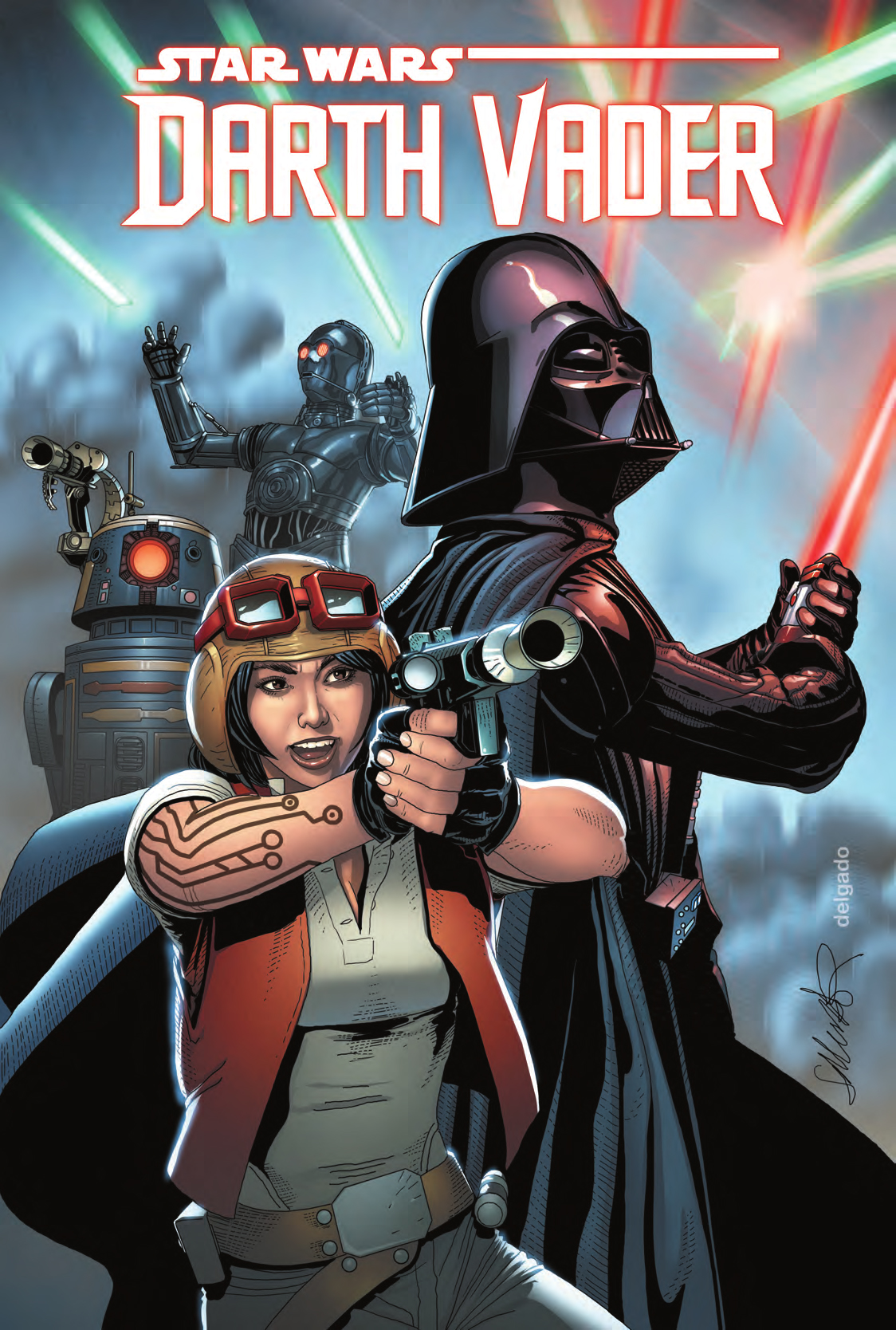
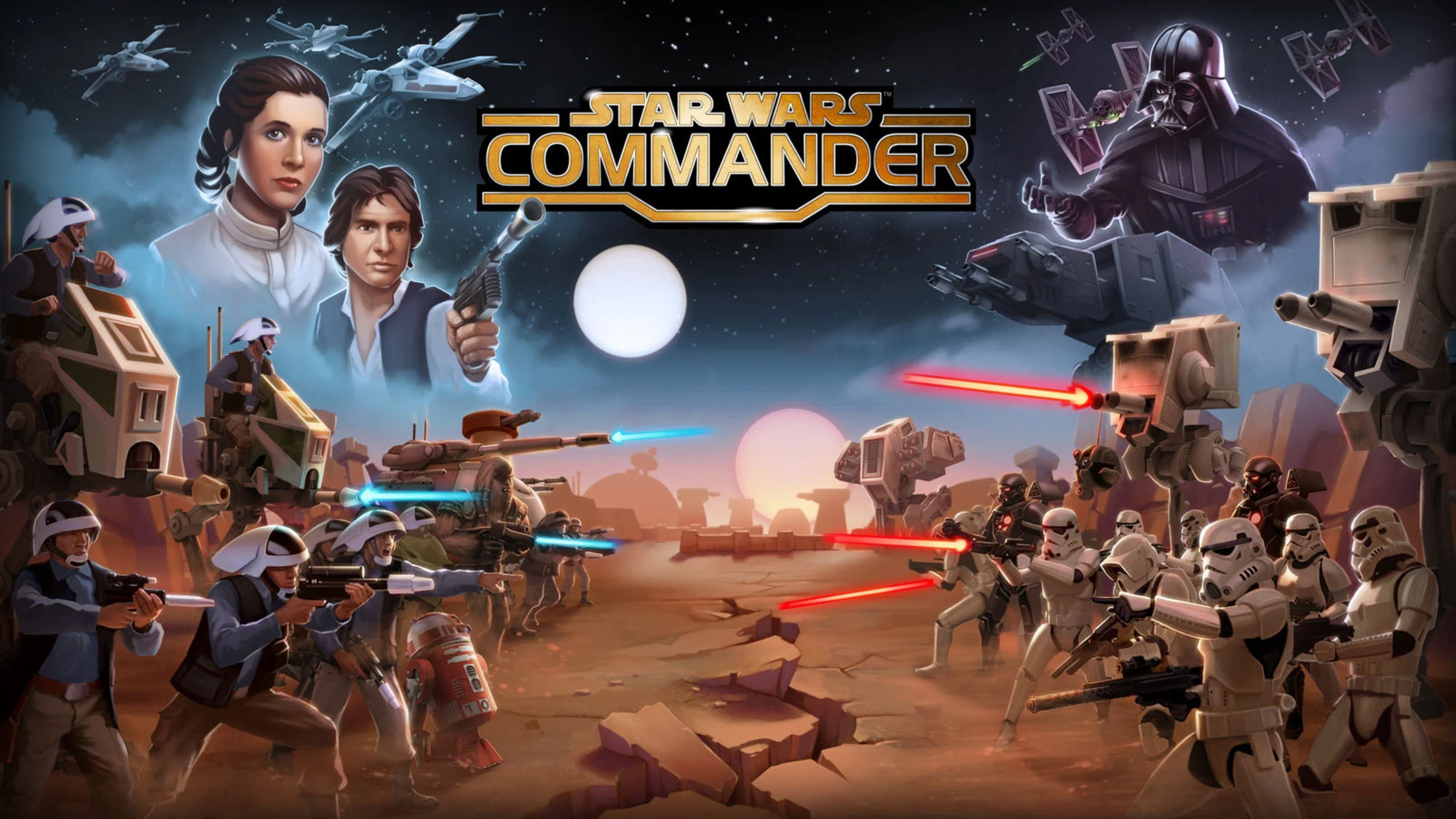
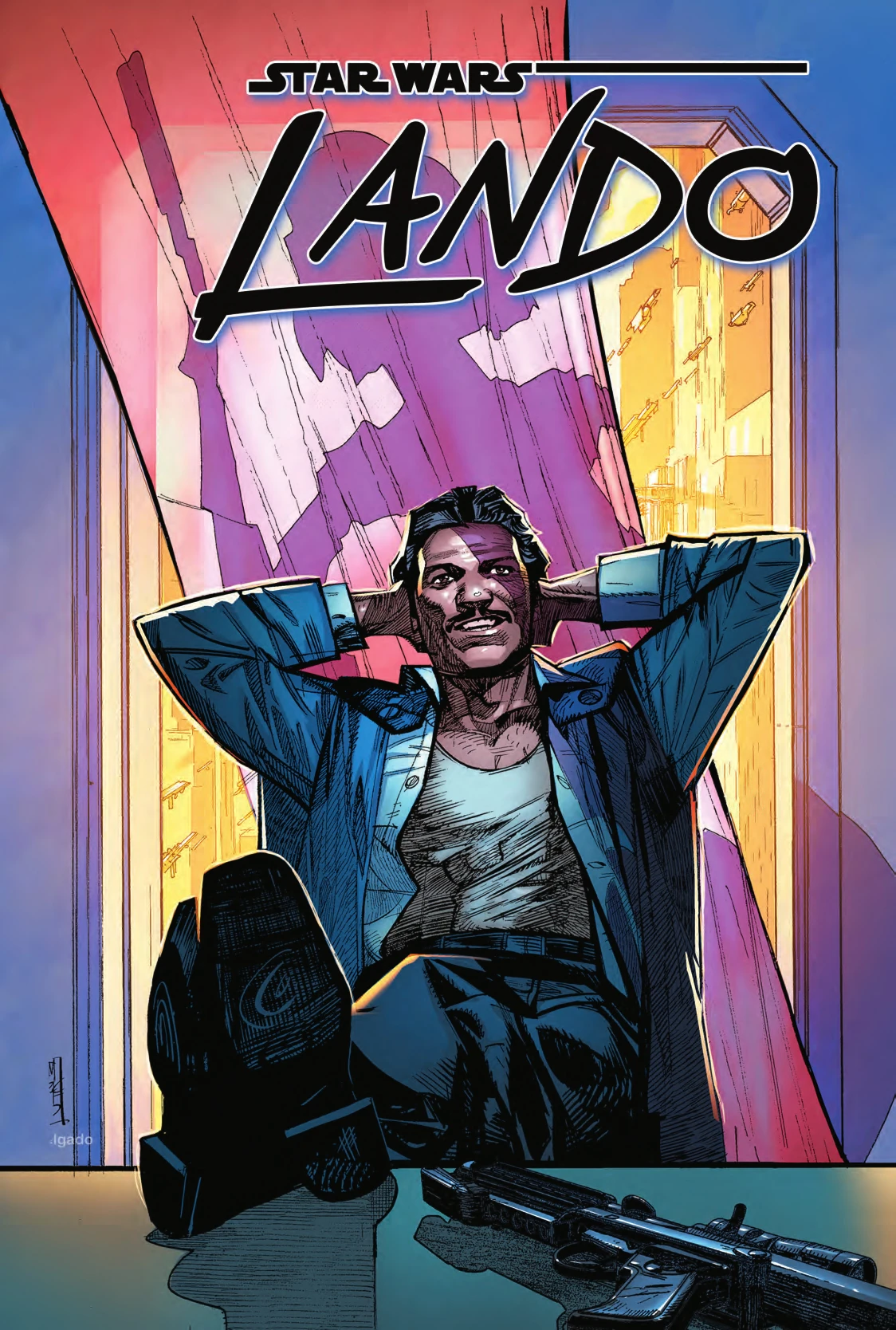
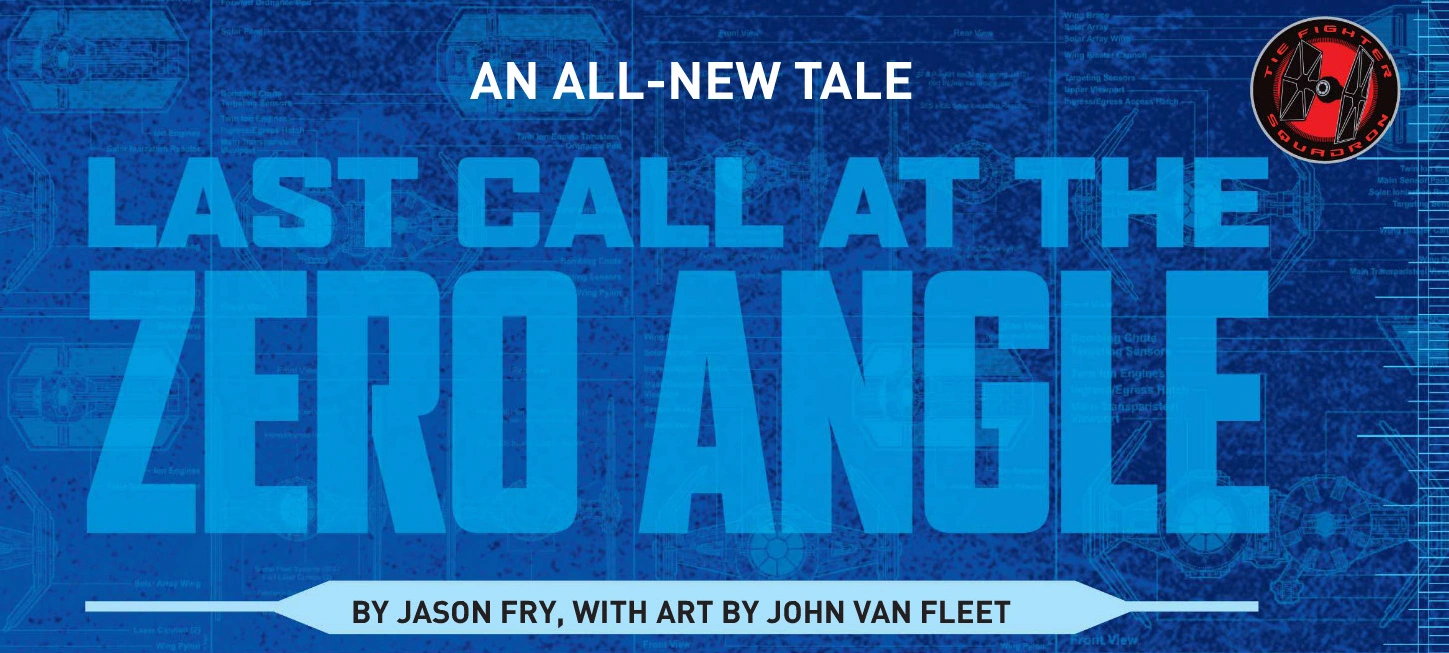

No comments:
Post a Comment